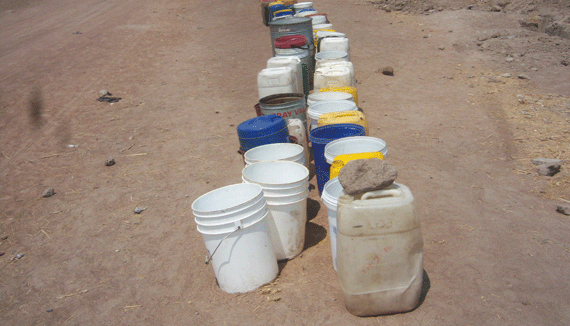
The haste at which the government implemented Operation Murambatsvina in 2005 led many to believe that it had a plan in place to clean up its mess.
In a matter of days, the government had displaced about 700 000 people from urban centres across the country in the controversial slum clearance.
After coming under a barrage of attacks from the international community, the government unveiled the Garikai/Hlalani Kuhle housing programme where people were allocated houses and stands.
The houses were mostly built on unserviced land and were purportedly allocated to poor people without any means to improve the dwellings.
Almost a decade after the programme was concluded, the recipients are still living without water and sewer reticulation systems in the majority of urban centres.
The issue took centre stage at the belated commemorations of World Habitat Day Celebrations held in Gwanda where Hlalani Kuhle residents narrated how they were living without running water and a sewer reticulation system.
Residents said they were forced to use the bush to relieve themselves and bitterly complained about the lack of privacy.
The residents said they were also exposed to water-borne diseases and other infections associated with poor sanitation.
- Chamisa under fire over US$120K donation
- Mavhunga puts DeMbare into Chibuku quarterfinals
- Pension funds bet on Cabora Bassa oilfields
- Councils defy govt fire tender directive
Keep Reading
Beneficiaries of the Hlalani Kuhle programme are at risk of water-borne diseases such as cholera and typhoid that have become common in Zimbabwe’s urban centres due to the collapse of the water and sewer reticulation systems.
The blame for this vicious cycle lies squarely on the government because it is a product of its poor planning and skewed political decisions.
Therefore, it is the duty of the government to quickly attend to the issues raised by the Gwanda residents before they suffer from an outbreak of diseases.
The government also needs well-co-ordinated programmes to deal with the problem of slums in urban areas and avoid creating problems it cannot deal with as it did with Operation Murambatsvina.










